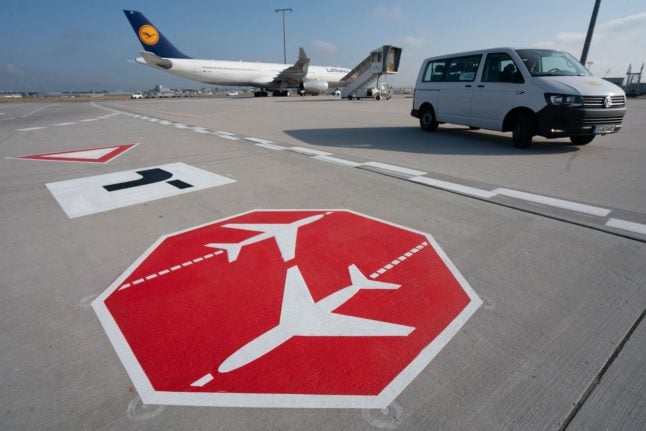The German company plans to cut 3,000 to 4,000 jobs out of around 22,000 across Fraport's Group companies.
Passenger traffic at Frankfurt Airport, Germany's busiest, fell 94.4 percent year-on-year in the three months to the end of June.
READ ALSO: Coronavirus pandemic-hit Lufthansa to cut 22,000 jobs
At Fraport's Group airports worldwide, which also include Delhi's Indira Gandhi Airport and Saint Petersburg's Pulkovo Airport, “passenger traffic came to a virtual standstill in the second quarter,” the company said.
Only Lima Airport, in Peru, made a positive contribution to the group's financial performance.
“The economic effects of the pandemic will be felt well beyond the current year and permanently change our industry,” Fraport's chief executive Stefan Schulte said.
“We are therefore aligning our plans with the 'new normal' that we expect to reach by 2022/23. From this new starting point, we expect moderate long-term growth again,” he added.
Even in 2022/23, passenger volumes at Frankfurt Airport are expected to be 15 to 20 percent lower than 2019, the company said.
The recovery of passenger numbers into the start of the third quarter has been “agonisingly slow,” according to analysts at Berenberg. “We expected weak momentum here given Fraport's exposure to business traffic and intercontinental passengers, but the reality may still disappoint.”
Revenue fell 48.9 percent compared with the same period of 2019 to €910.6 million, Fraport said.
The company posted a net loss of €231.4 million, down from a profit of €164.9 million in the same period of the previous year.
In the second quarter, more than two-thirds of Fraport's employees were put on shorter hours, according to Fraport, with working hours reduced by around 60 percent across the workforce.
READ ALSO: German firms apply for Kurzarbeit for nearly 12 million workers affected by pandemic
“We responded quickly and comprehensively to the crisis and were thus able to lower costs with immediate effect. But this will not be enough in the medium term… We must therefore streamline and downsize our company to make it even more efficient,” Schulte said.
However, in a sign of optimism, the company is continuing the expansion of Frankfurt Airport with the construction of Terminal 3.
“We believe that people will continue to want to travel and explore the world. We are confident that aviation will rebound as a growing market in the future,” Schulte said.



 Please whitelist us to continue reading.
Please whitelist us to continue reading.
Member comments